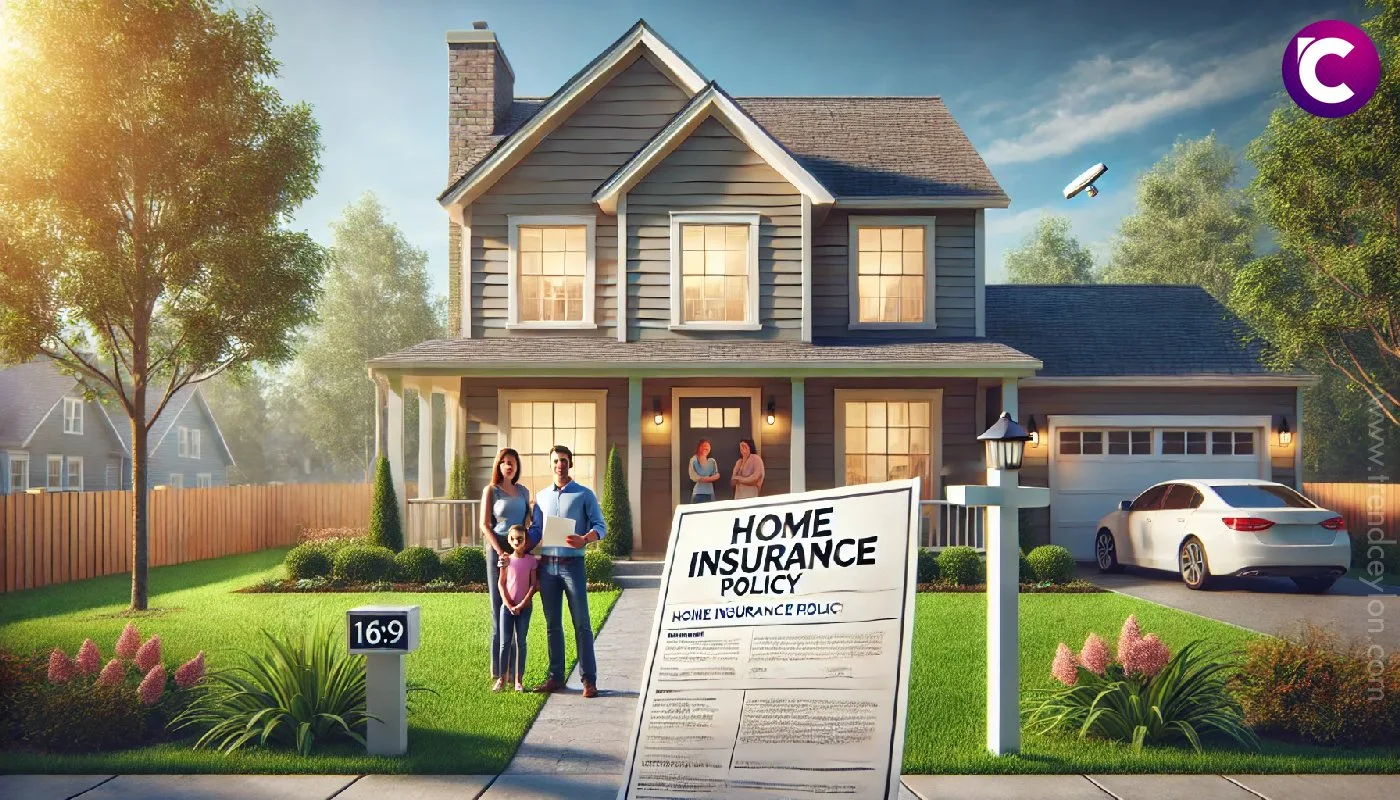Your home is likely one of your most significant investments, so taking steps to protect it from common risks is crucial. Whether it’s safeguarding against weather-related damage, theft, or accidents, preventive measures can minimize the chances of filing a home insurance claim. Doing so not only protects your property but may also keep your premiums from increasing after a claim.
In this guide, we’ll outline the most common types of home insurance claims and provide actionable steps to help you protect your home from these risks.
Common Home Insurance Claims and How to Prevent Them
1. Water Damage
Water damage is one of the most common home insurance claims, often caused by burst pipes, leaky roofs, or faulty appliances.
Prevention Tips:
- Maintain Your Plumbing: Regularly inspect pipes, faucets, and water heaters for leaks or corrosion.
- Install a Water Leak Detection System: These devices can alert you to leaks before they cause significant damage.
- Clean Gutters and Downspouts: Blocked gutters can lead to water pooling on your roof or foundation.
- Inspect Your Roof: Repair damaged shingles and seal any gaps to prevent leaks during storms.
- Insulate Pipes: Protect pipes from freezing in cold climates to avoid burst pipes.
2. Theft and Vandalism
Break-ins and vandalism not only cause financial loss but can also leave emotional scars. Fortunately, there are steps you can take to deter criminals.
Prevention Tips:
- Install a Home Security System: Modern systems with cameras, alarms, and motion sensors can deter potential intruders.
- Secure Doors and Windows: Use deadbolt locks and reinforce sliding doors with bars or dowels.
- Use Outdoor Lighting: Motion-activated lights make it harder for thieves to operate unnoticed.
- Keep Valuables Out of Sight: Avoid leaving expensive items in plain view through windows.
- Trim Landscaping: Overgrown bushes can provide cover for burglars. Keep entry points visible from the street.
3. Fire Damage
Fires can devastate homes, but many common causes of fires are preventable with the right precautions.
Prevention Tips:
- Install Smoke Detectors: Ensure you have smoke detectors on every floor and test them monthly.
- Maintain Electrical Systems: Avoid overloading circuits, and have an electrician inspect your wiring periodically.
- Be Careful with Open Flames: Never leave candles, fireplaces, or stovetops unattended.
- Create a Fire Safety Plan: Teach your family what to do in case of a fire, including escape routes and emergency contacts.
- Keep Fire Extinguishers Handy: Place extinguishers in the kitchen and near fireplaces.
4. Wind and Storm Damage
Severe weather can cause significant damage to your roof, siding, and windows.
Prevention Tips:
- Inspect and Reinforce Your Roof: Repair loose shingles and consider storm-resistant materials in high-risk areas.
- Secure Outdoor Items: Bring in patio furniture and other items that could become projectiles in high winds.
- Install Storm Shutters: These protect windows from flying debris during hurricanes or severe storms.
- Trim Trees: Remove dead or overhanging branches that could fall on your home during a storm.
5. Liability Claims
Liability claims can arise if someone is injured on your property or if you accidentally damage someone else’s property.
Prevention Tips:
- Repair Walkways and Driveways: Fix cracks or uneven surfaces that could cause trips or falls.
- Install Adequate Lighting: Ensure pathways, stairs, and entryways are well-lit at night.
- Secure Pets: If you have pets, ensure they are well-trained and kept away from visitors who may not be comfortable with animals.
- Supervise Children’s Play Areas: Regularly inspect play equipment for safety and ensure children are supervised.
6. Mold Damage
Mold growth often results from prolonged water damage and can lead to health issues as well as costly repairs.
Prevention Tips:
- Control Humidity Levels: Use dehumidifiers in damp areas like basements.
- Fix Leaks Immediately: Address plumbing or roof leaks as soon as they occur.
- Ventilate Bathrooms and Kitchens: Install exhaust fans to reduce moisture buildup.
- Inspect Hidden Areas: Periodically check attics, basements, and behind appliances for signs of mold.
7. Appliance-Related Damage
Faulty or aging appliances can lead to fires, water damage, or electrical issues.
Prevention Tips:
- Perform Regular Maintenance: Clean dryer vents, check water connections on washing machines, and inspect dishwashers for leaks.
- Replace Old Appliances: Older appliances may lack modern safety features, increasing the risk of malfunctions.
- Unplug When Not in Use: Reduce the risk of electrical fires by unplugging appliances not in use.

8. Natural Disasters
Hurricanes, earthquakes, and floods can cause catastrophic damage. While these events are unpredictable, you can prepare your home to minimize damage.
Prevention Tips:
- Add Flood Barriers: Use sandbags or install permanent flood barriers in flood-prone areas.
- Secure Heavy Items: Bolt down furniture and water heaters to prevent movement during earthquakes.
- Upgrade to Wind-Resistant Materials: In hurricane-prone areas, consider materials designed to withstand strong winds.
- Review Your Insurance Policy: Standard policies may not cover earthquakes or floods, so consider additional coverage for these risks.
General Tips to Avoid Home Insurance Claims
- Conduct Regular Inspections: Walk through your home quarterly to identify potential risks, such as leaks, cracks, or overgrown landscaping.
- Document Your Belongings: Create an inventory of your personal property with photos and receipts. This will simplify the claims process if damage occurs.
- Review Your Insurance Coverage: Ensure your policy provides adequate coverage for both your home and belongings. Consider riders for high-value items like jewelry or electronics.
- Be Proactive About Repairs: Address minor issues like roof damage or plumbing leaks before they escalate into major problems.
The Benefits of Preventing Home Insurance Claims
Taking preventive measures not only protects your home but also offers several benefits:
- Lower Insurance Premiums: Insurers may offer discounts for security systems, storm-resistant materials, or claims-free histories.
- Reduced Financial Stress: Preventing damage reduces the likelihood of out-of-pocket expenses for repairs.
- Improved Safety: Many precautions, such as fire safety measures or secure walkways, also enhance the safety of your household and visitors.
Conclusion
Protecting your home from common insurance claims requires a proactive approach to maintenance and safety. By addressing risks like water damage, theft, or fire early, you can avoid costly repairs, maintain a claims-free insurance record, and enjoy greater peace of mind. Regularly review your home for vulnerabilities, invest in safety upgrades, and stay informed about your insurance policy to ensure comprehensive protection.

















